
Docker Breed Information & Characteristics
Weight Gain Potential
Do Dockers get fat easily?
The Docker is a breed that has an average risk of becoming obese. Daily walks and a balanced diet of quality dry dog food can help maintain a healthy weight. An active lifestyle and monitoring weight regularly is recommended.
Hypoallergenic
Are Dockers Hypoallergenic?
Unfortunately, the Docker is not hypoallergenic, making it not a good choice for a dog lover who suffers from pet allergies.
Temperament
What is a Docker personality? What are Docker dogs best known for?
Loyal
Affectionate
Shedding Level
Are Dockers heavy shedders? How Much Does a Docker Shed?
Docker dogs are not heavy shedders, but they will lose a significant amount of hair each year. To decrease the amount of shedding, you can regularly brush your Docker. This will remove loose hair and keep his coat growing in the same direction.
Watchdog Ability
What is the watchdog ability of a Docker dog?
The Docker dogs are average watchdogs. If they sense something different, this breed will alert their owner.
Origin
Where do Dockers come from?
United States
Ancestry
What are Dockers descended from?
Dachshund and Cocker Spaniel
Breed recognition
What organizations or kennel clubs recognize/register the Docker breed?
Not recognized by any clubs.
Date of Birth
When were Dockers first bred? How old is the Docker breed?
1999
Eye Color Possibilites
What color are Docker eyes?
Hazel
Brown
Nose Color Possibilites
What color can Docker nose be naturally?
Black
Coat Color Possibilites
What color can Docker coat be naturally?
Black
Brown
White
Cream
Coat Length
How long is a Dockers coat?
The coat of a Docker falls in the medium length category.
Coat Density
How Dense Is The Docker Coat?
Coat Texture
What is the texture of the hair of a Docker?
Straight
Litter Size
How many puppies can a Docker have in a litter? How many puppies can a Docker have in her first litter?
A Docker can have a litter of 12-14 puppies on average. However, it's worth noting that the size of the litters can vary greatly. Factors that can influence litter size include the health of the mother, breeding history, and genetics.
Adaptability
Docker dogs generally adapt well to changes in lifestyle and different living environments, but it is considered as an average level of adaptability compared to other breeds.
Health Issues
Do Dockers have a lot of health problems?
The Docker is generally considered to be healthy. However, like all breeds, they are susceptible to certain health issues and it is important to keep an eye out for them and address them with your veterinarian as needed.
Major Concerns
What are the major health concerns to be aware of when owning a Docker?
Retinal Dysplasia
Seborrhea
Color Dilution Alopecia
Acanthosis Nigricans
Minor Concerns
What are the less significant issues to keep in mind when it comes to Dockers?
Entropion
Ectropion
Lip Fold Pyoderma
Exposure Keratopathy Syndrome
Occasional Tests
What are the occasional tests recommended for Docker breed?
X-Rays
MRI
CT Scan
Eye Examination
Skin Evaluation
Ultrasound
Energy
Do Dockers have a lot of energy?
For those who lead a balanced lifestyle, Dockers may be a good choice as they have an average energy level.
Social Needs
Do Dockers need socialization? How social are Dockers?
Docker have above average social needs compared to other breeds.They thrive in environments where they have a lot of interaction with humans and other dogs.
Exercise Needed
How much exercise should Dockers get?
The Docker dog requires a moderate amount of physical activity to maintain a healthy lifestyle. These breeds are ideal for people who have a moderate amount of time to devote to their pet and enjoy regular physical activity themselves. They also make great family pets as they have the energy to keep up with children and the temperament to be great companions.
Sleeping Need
How much sleep should a Docker have? Do Dockers sleep a lot?
The Docker breed is known for its moderate energy levels and normal sleep patterns, typically sleeping around 12-14 hours per day.
Drooling Tendency
Does a Docker drool a lot?
The Docker is a dog that is known for its low drooling tendency. If you dislike drool marks on your clothing, the Docker could be a suitable choice for you.
Tendency to Bark
How much does it bark?
The Docker is a vocal breed, with a tendency to bark and howl frequently. They may not be the best fit for those seeking a quiet companion. Their barks can vary and can indicate different emotions and needs.
Territorial
Do Dockers exhibit aggressive behavior to safeguard their home and territory? Do they possess a natural tendency to guard?
Docker dogs are known for being average at defending. They possess the capability to defend their territory or owners, but it is not their primary trait. They are not the best choice for guard dogs
Mouthiness
Are Dockers mouthy?
Roaming urge
What is the likelihood of a Docker running away? Do they have a tendency to explore or wander frequently?
Prey Drive
Do Docker dogs have a high prey drive?
Past times
What do Dockers enjoy doing? How do I keep my Docker busy?
Playing fetch, Wañking, Chase, Fetch, Catch treats, Walk, Tug-of-war, Chasing, Walking, Sniffing, Dog Parks, Cuddling, Bath time, Napping, Running, Hike
Activity Level
What is the energy level of a Docker? How much energy does a Docker have?
Dockers are medium-energy dogs and typically enjoy socializing and playing casual or even sustained games of chase with other dogs. They may also have occasional periods of barking or racing around the house.
Tolerance of being left alone
Walks per Week
How far should a Docker walk each week? How many miles should a Docker walk every week?
There's really no limit to how far you walk your dog as long as they're comfortable. For Docker, it's at least 7 miles / week. Just remember to build distance and stamina gradually over time.
Activity per Day
How much a Docker should exercise a day? How much activity does a Docker need?
In general most Dockers usually need at least 60 minutes of exercise daily. This can be spread across the day and include all sorts of high-energy activities, like walking, running and playing.
Grooming
What level of grooming should be provided for a Docker?
The Docker is a breed of dog that requires an average amount of grooming effort.
Brushing Frequency
How often should you brush a Docker?
Ideally, Docker should be brushed at least 2 or 3 times a week (preferably daily) improve shedding.
Brushing Tools
What are the most commonly used brushing tools for Dockers?
Pin Brush
Slicker Brush
Nail Clipper
Cups
How many cups of food does a Docker eat?
For an average 25-30 pound (11 - 14 kg) Docker feed 2 cups daily. But, keep in mind, the amount you feed is going to be dependent on the quality of the food you are feeding.
Daily Cost
How Much Does a Docker Cost Daily?
The average cost of a Docker is somewhere $2.10 - $2.80 per day.
Monthly Cost
How Much Does a Docker Cost Per Month?
The average per month expenses of a Docker is between $63 - $84. This makes an average of $756 - $1008 per year. It will be on the higher side when the dog is still small because it will need more frequent visits to the vet, shots.
Intelligence
How intelligent is a Docker?
The Docker breed is considered very intelligent and easy to train.
Sensitivity Level
How sensitive is a Docker dog?
This dog breed is more sensitive than others and easily overwhelmed by new surroundings and people. They need gentle handling and a calm, stable home environment with positive reinforcement training.
Affection Dependance
Are Docker dogs affectionate?
Apartment Friendly
Do Docker do well in apartments? Are Dockers good indoor dogs?
Dockers are dogs that do well in apartments with sufficient exercise, but they would really appreciate a small yard.
Child Friendly
Are Dockers good with kids? Are Dockers good around children?
Dockers are average friendly dogs towards children.
Senior-friendly
Are Dockers good for elderly?
Cat Friendly
Are Dockers good with cats? How friendly Dockers are toward cats?
Dockers are not cat friendly dogs.
Dog Friendly
Do Docker dogs get along with other dogs? Are Dockers OK with other dogs?
Dockers are average friendly towards other dogs. If they are raised with other dogs, they are likely to get along with them. And, if they are socialized properly from a young age, they will usually be great with other dogs.
Pet friendly
How do Docker dogs interact with other pets? Are they considered pet-friendly?
Stranger Friendly
Are Dockers friendly with strangers?
Dockers are below average friendly around strangers. Keen of eye and sharp of tongue, most Dockers are very quick to announce strangers at the door. Once the visitor comes in, some Dockers will be friendly and outgoing. But many others have the standoffish or suspicious towards strangers.
Playfulness
Do Dockers like to play? Are Dockers playful?
The Docker is a playful dog. So, no matter how busy the day may get, the best thing you can do for your Docker is to make time each day to play. It can be as little as 15-20 minutes, and it will mean the world to them.
Trainability
Are Docker easily trained?
Docker dogs are known for their ease of training and ability to learn quickly, making them a popular choice for pet owners and trainers alike.
Compare Docker with other breeds
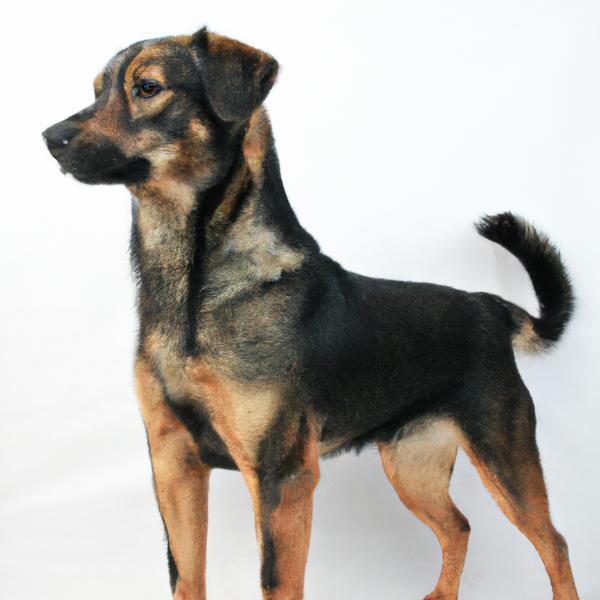
Chesador
Docker vs Chesador
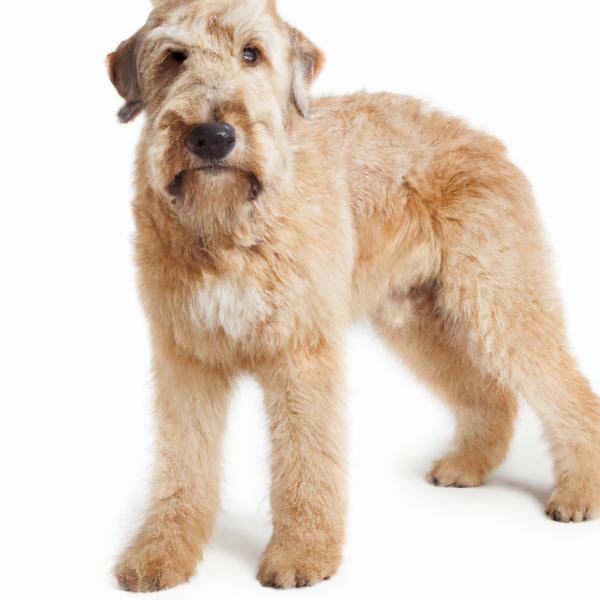
Soft-Coated Wheaten Terrier
Docker vs Soft-Coated Wheaten Terrier
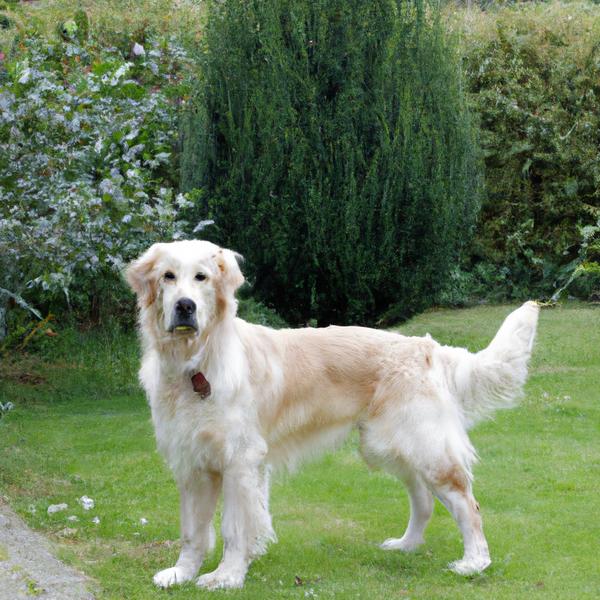
Spangold Retriever
Docker vs Spangold Retriever
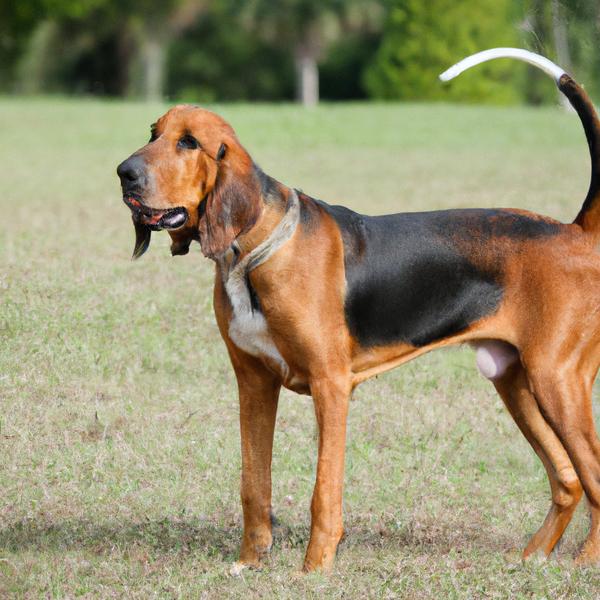
American English Coonhound
Docker vs American English Coonhound
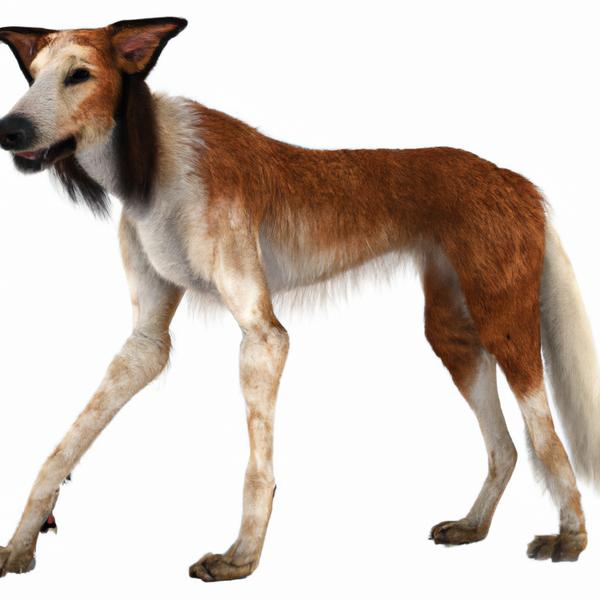
Meagle
Docker vs Meagle

Borgi
Docker vs Borgi

Sheprador
Docker vs Sheprador
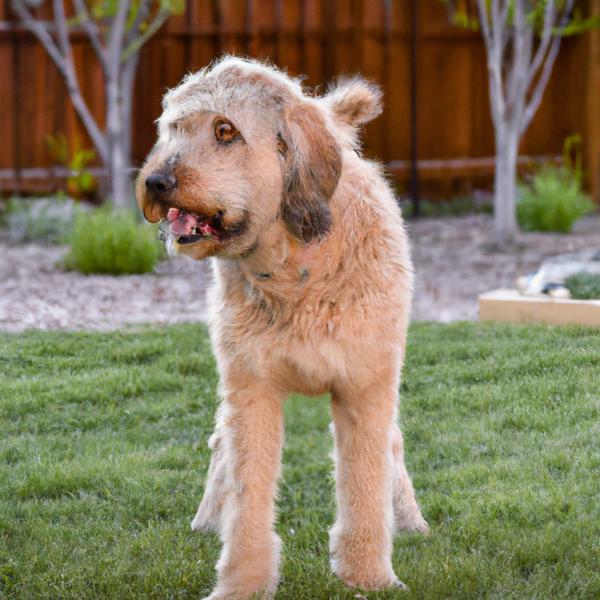
Mastidoodle
Docker vs Mastidoodle
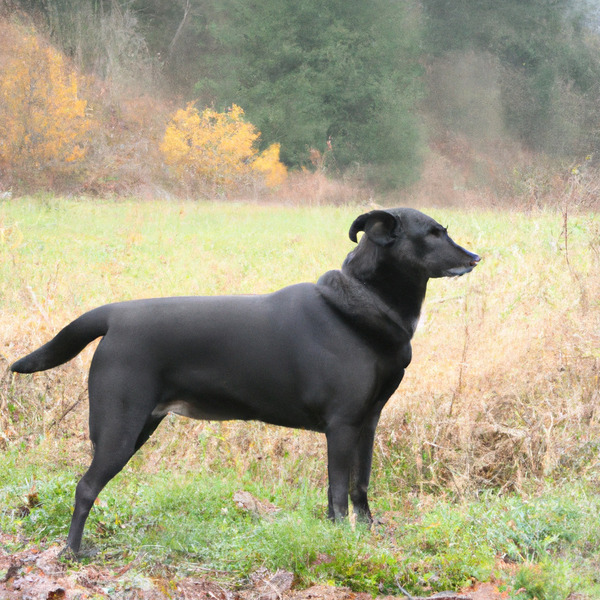
McNab
Docker vs McNab
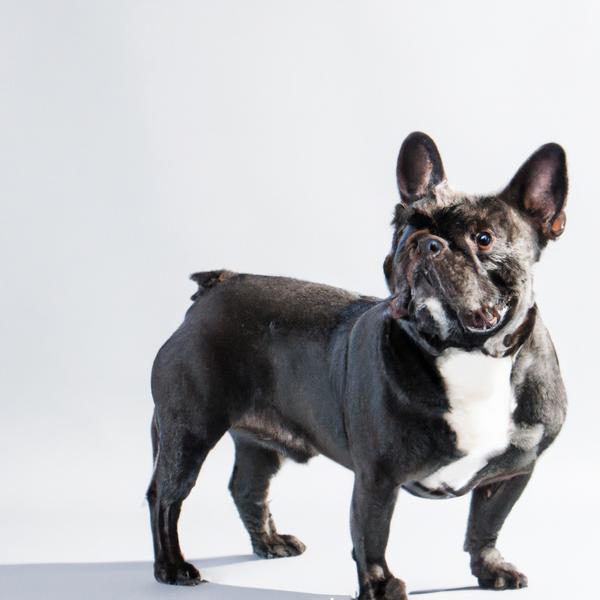
French Bull Jack
Docker vs French Bull Jack
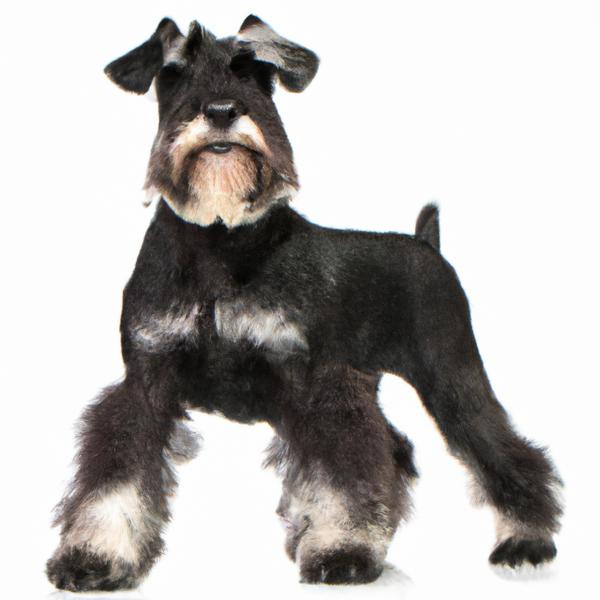
Miniature Schnaupin
Docker vs Miniature Schnaupin
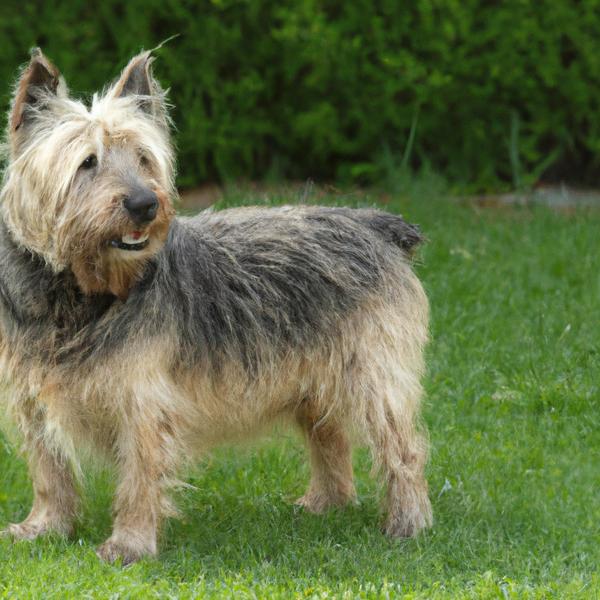
West Australian Terrier
Docker vs West Australian Terrier